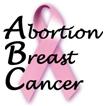Physician-Congressman warns colleagues
Click here to read letter by Dave Weldon, MD
Physician-Congressman warns colleagues:
ABC a "health care time-bomb" On June 8 of this year, a floor debate erupted in the US Congress about the ABC link in the context of a debate on an amendment to the Food and Drug Administration funding bill. (See cover story, Spring 1999 ABCQ Update). The exchange involved over half a dozen Congressmen, with five speaking in favor of the need for the public to know about the evidence of the ABC link.
None spoke more passionately than Dr. Dave Weldon of Florida, who said (in part):
‘My colleagues, I have reviewed the studies on this issue and the studies are very, very compelling that there really is a link. The statement released by the NCI (see lead story, this issue), I believe, is a very disingenuous statement. It really sincerely ignores the facts on this issue. If my colleagues actually take the time to read the studies, it is very, very bothersome to me that there are a lot of people within the cancer research community that are turning a blind eye to this issue."
It may well be that these words were instrumental in the softening up of the language of denial in the NCI’s ABC web page, as discussed here on page 1.
But Dr. Weldon did not stop with a single public statement, bold as it was. On August 24th, he sent a "Dear Colleague" letter about the ABC link to every other member of Congress, along with a reprint of the comprehensive paper by John Kindley, JD18, which was published in March in the Wisconsin Law Review. (See Summer 1999 ABCQ Update) The Kindley paper details the legal case to be made for failure of abortion practitioners to give informed consent about the ABC link.
In his letter to colleagues, Dr. Weldon cited the Congressional debate, and also our "Comprehensive review and meta-analysis" 1 on the ABC link, published in 1996.
The one statistic Dr. Weldon shared with colleagues was the overall finding of a 50% increased risk, as reported in the 1994 study by Daling et al. 2
The main institutional target of the letter was Planned Parenthood Federation of America, the nation’s largest abortion provider, and a recipient of substantial federal funding.
Expressing concern "that pro-abortion politics are preventing vital information from being given to women", Dr. Weldon reminded his colleagues: "As legislators, we also have an ethical responsibility to ensure that we are not facilitating or promoting a procedure which poses a significant health risk to women."
At this point, more Congressional action on ABC is surely needed. –JB-
- 1. Brind, J., Chinchilli, V. M., Severs, W. B., and Summy-Long, J. Induced abortion as an independent risk factor for breast cancer: a comprehensive review and meta-analysis. J. Epidemiol. Community Health, 50: 481-496, 1996.
- 2. Janet R. Daling et al., Risk of Breast Cancer Among Young Women: Relationship to Induced Abortion, 86 Journal of the National Cancer Institute; (1994);1584.


